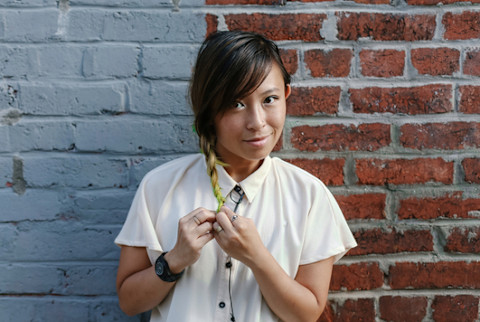
Witnessing suffering (especially in a person you care about) can be frightening and upsetting—especially if it's something you aren't used to seeing. However, for the roughly 40 million adults who struggle with an anxiety disorder here in the United States, nerves, discomfort, worry—and yes, sometimes even panic—are a very real part of life. Like life, one’s experience with anxiety is entirely individual, and what works for some simply does not work for all.
For me, generalized anxiety has been a part of my journey for as long as I can remember. And while I have experienced both ups and downs along the way, each has provided me with a better understanding of myself and my needs.
Of all the lessons I've learned from living with anxiety, the most significant is this: We alone are responsible for managing our personal well-being. Whether it’s therapy or yoga, meditation or medicine (or maybe a combination of them all), perfecting the recipe for your healthiest self is key.
But that doesn't mean it's all on you all the time. Everyone needs a supportive, loving community. Misconceptions about mental illness strike us hard at every corner. It's important to remember that compassion breeds truth and common ground.
So, whether you are a friend, partner, or family member, here are five things to avoid saying to someone you love who's dealing with anxiety.
1. “Just be happy.”
Unfortunately, it's not that simple. For people who struggle with anxiety, feeling happy in a period of discomfort is far more difficult than it may sound. Of course, we want to feel happy (and calm and relaxed), but telling us how to feel will not make us feel better. In fact, it will likely just make us feel misunderstood or judged.
2. "You need to relax."
Sure, relaxation would be great—but again, telling someone how to feel without helping them figure out how is the quickest way to make someone feel isolated. If your aim is to help a loved one calm down, a gentle prompt to focus on the breath may be a much more effective way to help us achieve relaxation.
3. "You're being crazy."
Anxiety is a tricky beast. The way an anxious person reacts to a given situation may seem irrational from an outside perspective. Occasionally, we may even identify that our discomfort is illogical. Regardless of your opinion about whether or not someone else's anxiety is warranted, it is difficult to argue that calling them “crazy” is going to foster positive results.
Even if they're acting in a way you don’t understand, consider the context with which you’re approaching them. Putting someone down for whatever they may be working through is never the answer.
4. "But you have so much to be grateful for."
For me, this may be the worst. Incorporating gratitude into my daily practice has undoubtedly helped me lead a healthy, more balanced life. But anxiety and appreciation are almost mutually exclusive. Struggling with an anxiety disorder (or disorder of any kind, for that matter) does not make you ungrateful—it makes you human. This is one of the many stigmas associated with anxiety that continues to make so many sufferers feel bad about themselves.
5. "It's in your head."
When it comes to anxiety it’s not just in our heads. It’s in our racing hearts, our clammy palms, and our failing breath. For us, it is everywhere, and it is so very real. Telling us in this moment that what we are feeling is just in our heads is like telling someone with a broken leg they are imagining the pain. It’s exhausting, invalidating, and lonely.
At the end of the day, we are all human. Cultivating a safe space where we each feel loved and accepted is undoubtedly the first step toward creating positive change in our approach to mental illness.
Related reads:
